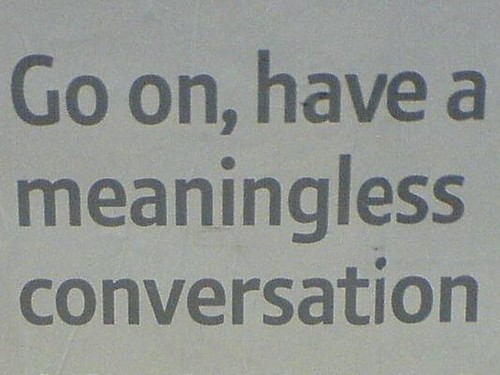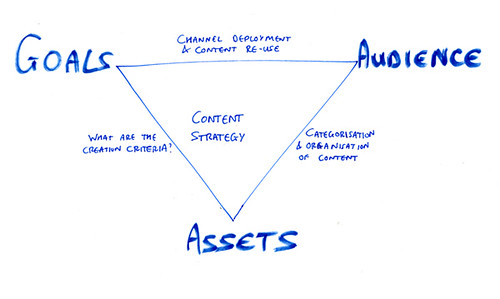We had the first London-IA book club last week and it went well.
I forgot to take photos of the people to came, but there was a mix of permie/contractor, Annie from
Agency, Leisa from
flow interactive, Margaret, Giorgio, Dina,
Liz. (if any of you have blogs let me know and i'll set up a link)
The book was
Persuasive Technology by B.J. Fogg and was a pretty good choice. It raises some interesting questions and talks about some really interesting research.
My Quick summary:Fogg defines Persuasive Technology as "Any interactive computing system designed to change people's attitudes or behaviours"
He then lays out a 'functional triad' made up of technology as 'Tool', as 'Media' and as 'Social Actor'.
Technology as a tool is where the technology helps you complete a task, or guides you through a process (eg a wizard)
Technology as persuasive media allows the simulation of activities, explore cause & effect, explore potential outcomes and motivate via experiences.
Technology as social actor considers human relationship behaviours and how these can be employed or translated online. Modelling target behaviours, providing social support etc.
Fogg goes through each of these in quite a lot of depth pulling out some really interesting research.
Everyone agreed that the section on Technology as Social Actors was the most interesting (if not the most easily applicable).
An example of some of the most interesting research were the effects of similarity and of reciprocity.
in the affiliation study:- participants were given a problem to solve and the computer was either a 'teammate' or it was given no label
- interaction was identical for all participants
- the 'teamed' participants considere theh computer was more similar to them, smarter and offered better information.
in the reciprocity study- participants had to complete a task
- half the time the computer was 'helpful' the other half, 'not helpful'
- subsequently the participants were asked to do some work to help the computer improve it's functions
- those who worked with a 'helpful computer' performed almost twice as much work as did the other participants.
Fogg goes on to speak about Credibility and how to attain it - this is the most practical 'how-to' part of the book, and the most widely known.
His final two chapters discuss mobile technologies & the ethics of persuasive technology.
Chat:The term 'Captology' was roundly dismissed as a bit rubbish, and doesn't really seem to have been taken up by the community.
The idea of identifying which role your project was trying to fulfill (eg, change behaviour or initiate action) and then considering which aspects of the functional triad elements are most appropriate for the project (tool/media/social actor) was considered considered a useful tool.
The chapter on credibility was seen to be a bit less interesting, although great for clients.
The use of the book as a tool for selling ideas was discussed.
We all agreed that if it was written now, some 5 years later it would be far more weighted towards the chapters at the back - ie, the mobile & social side of computing.
There was lots more by my brain can't recall it all.
Anyway it was good, if anyone has any more comments about the book then you should continue the discussion below.
details of the next book club to follow...
Book loansI have 2 copies available for loan if you want them, i'll post them to you, the only requirement is that you write a short (500 word) review of what you thought about it. the first review is below, from Annie Drynan at agency (thanks annie)
 Next round of IA book club on April the 5th
Next round of IA book club on April the 5th








